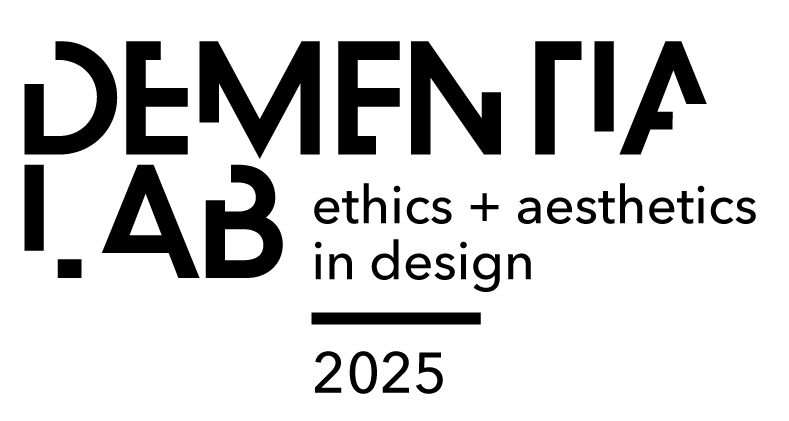Dementia Lab Conference
2025 Portugal
ethics + aesthetics in design
Thank you!
See you on the next Dementia Lab Conference!
This edition of the Dementia Lab Conference has taken place on 13-14 March 2025, hosted by the University of Aveiro, Portugal. The 2025 edition is jointly organised by ID+ (Research Institute for Design, Media and Culture), and CINTESIS@RISE (Center for Health Technology and Services Research at the Associate Laboratory RISE – Health Research Network).
Dementia Lab 2025: Ethics + Aesthetics in Design
Proceedings of the 7th Dementia Lab Conference, D-Lab 2025, March 13–14, 2025, Aveiro, Portugal
Open Access
The Dementia Lab proceedings (including past editions) are now indexed on Web of Science
Dementia Lab 2025: Collecton of Summaries from Presented Research
Summaries from the 7th Dementia Lab Conference, D-Lab 2025, March 13–14, 2025, Aveiro, Portugal
Open Access
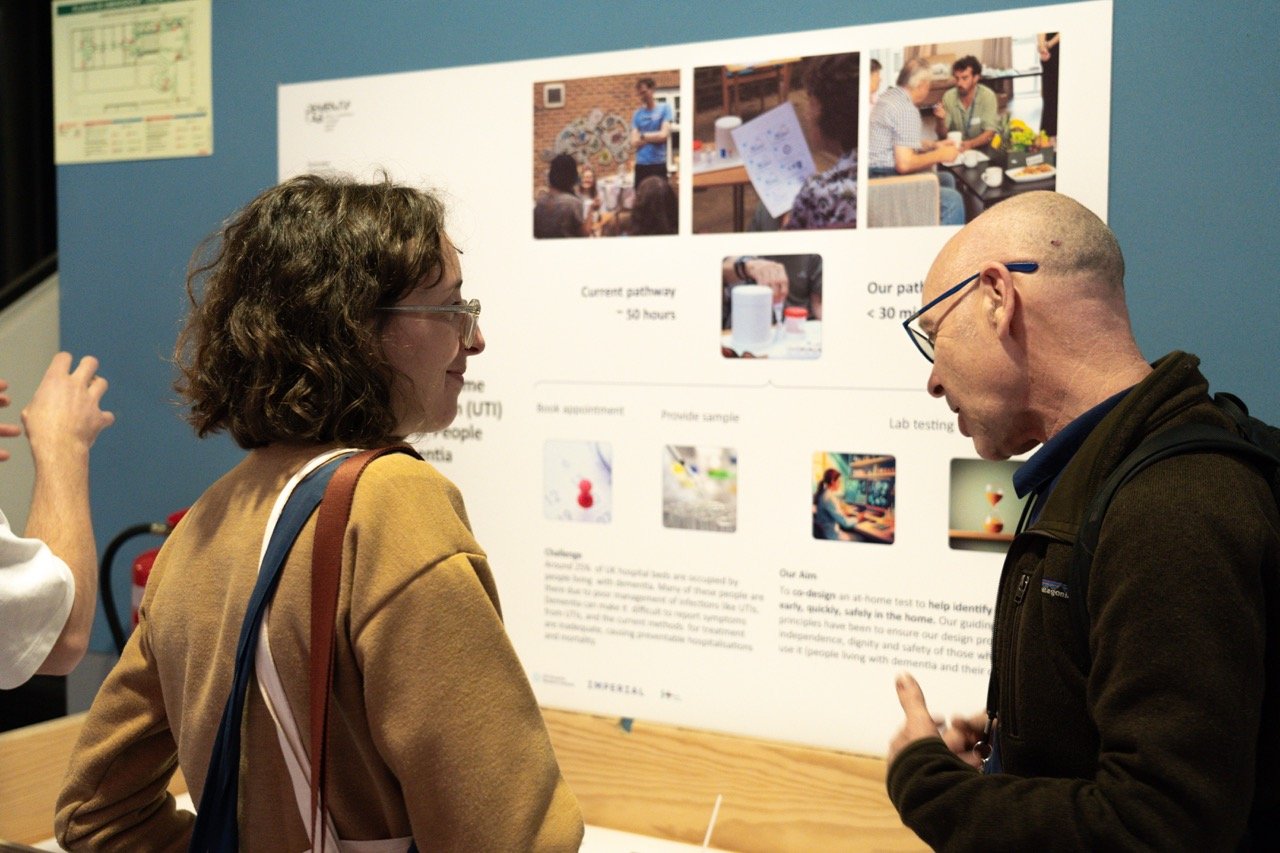
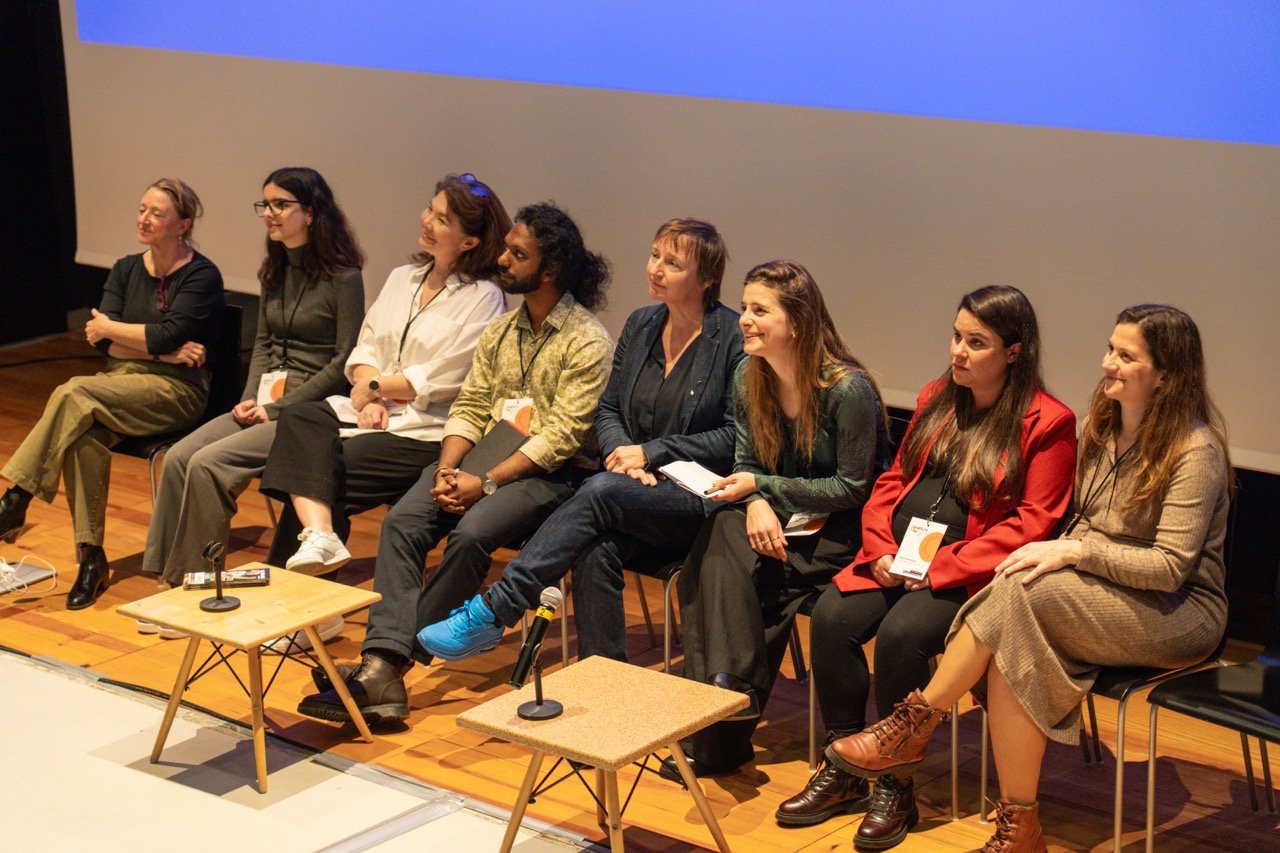
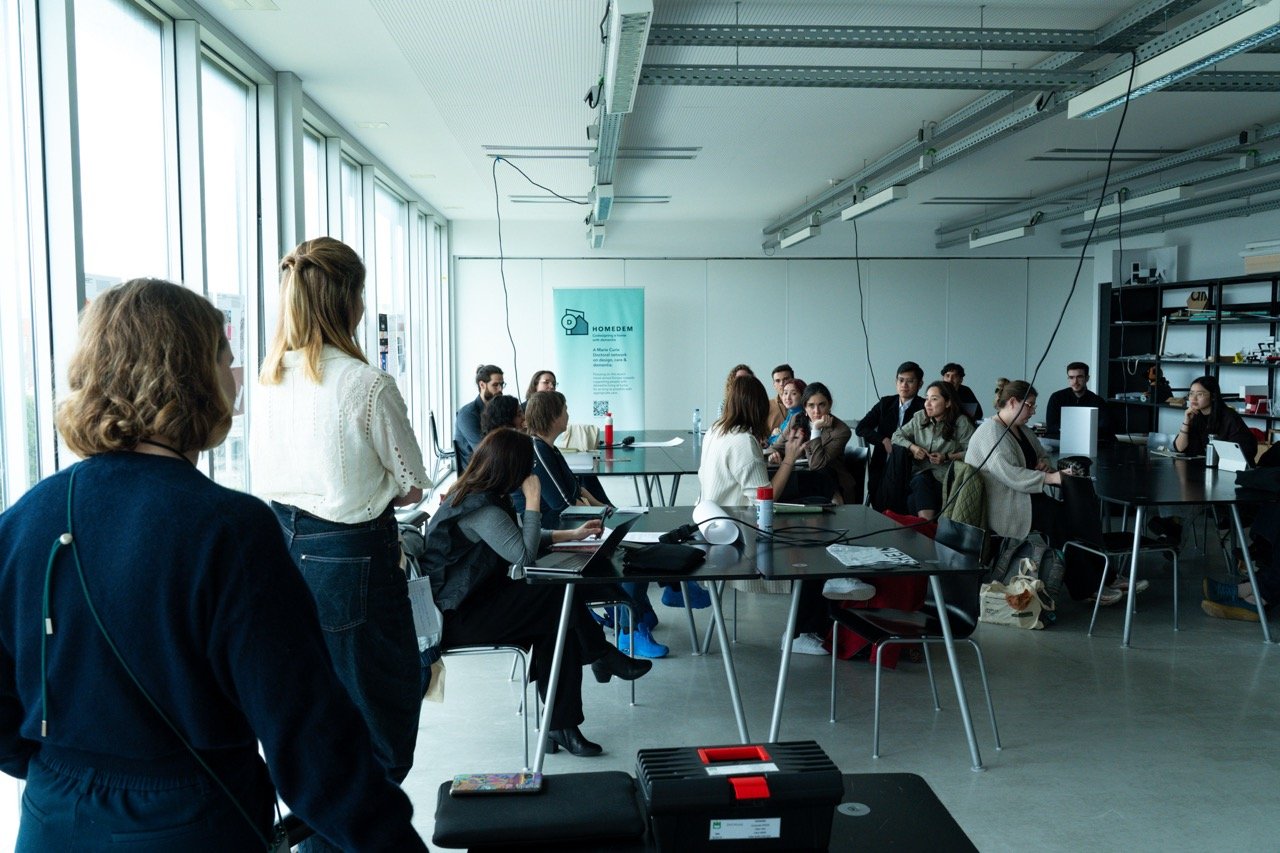
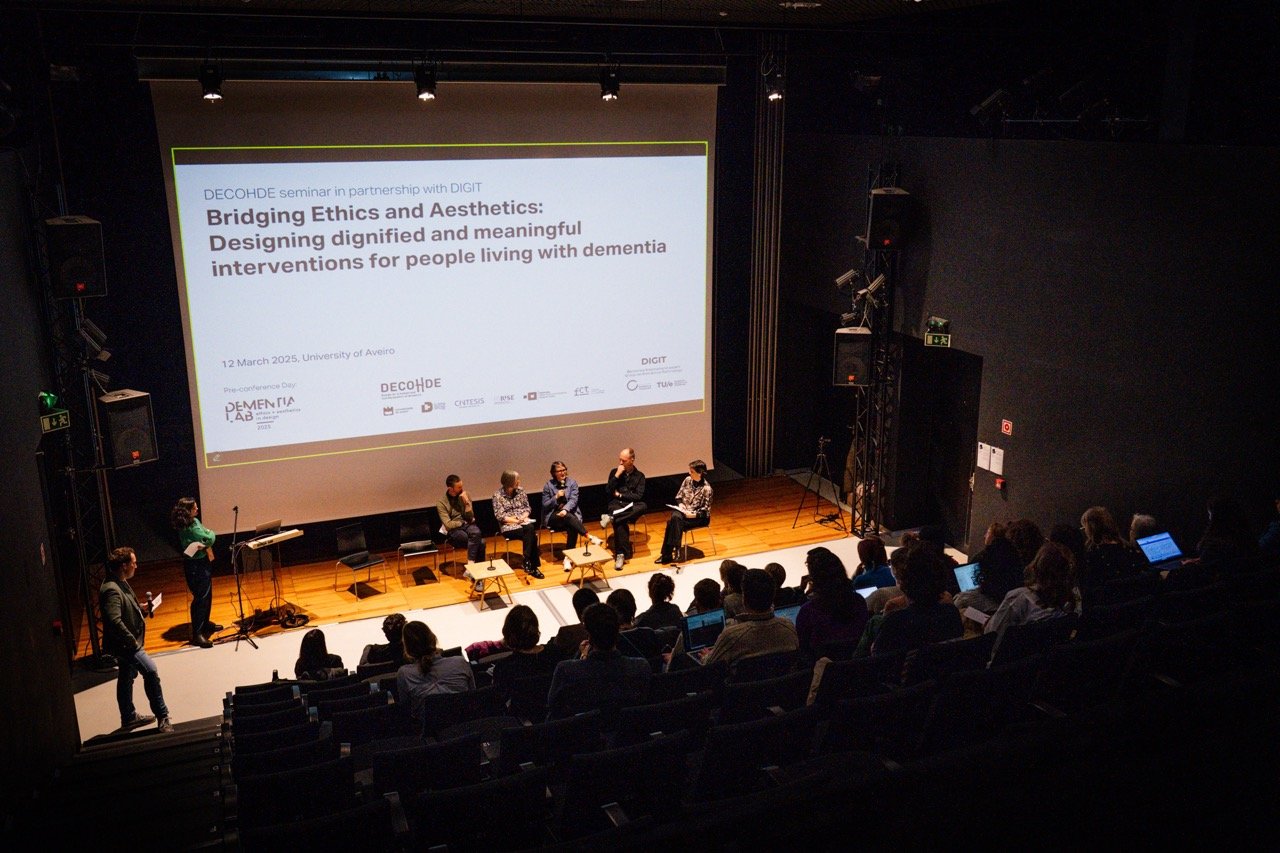

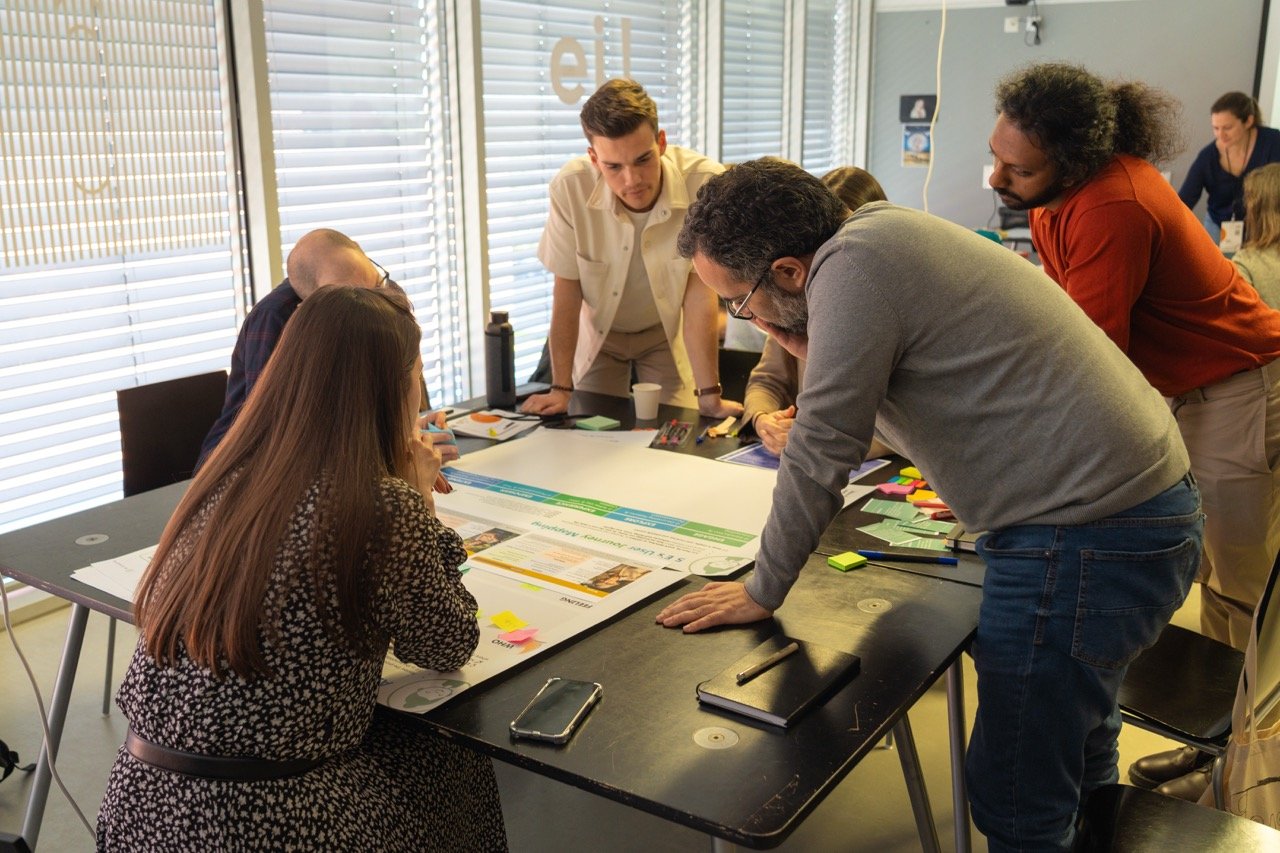
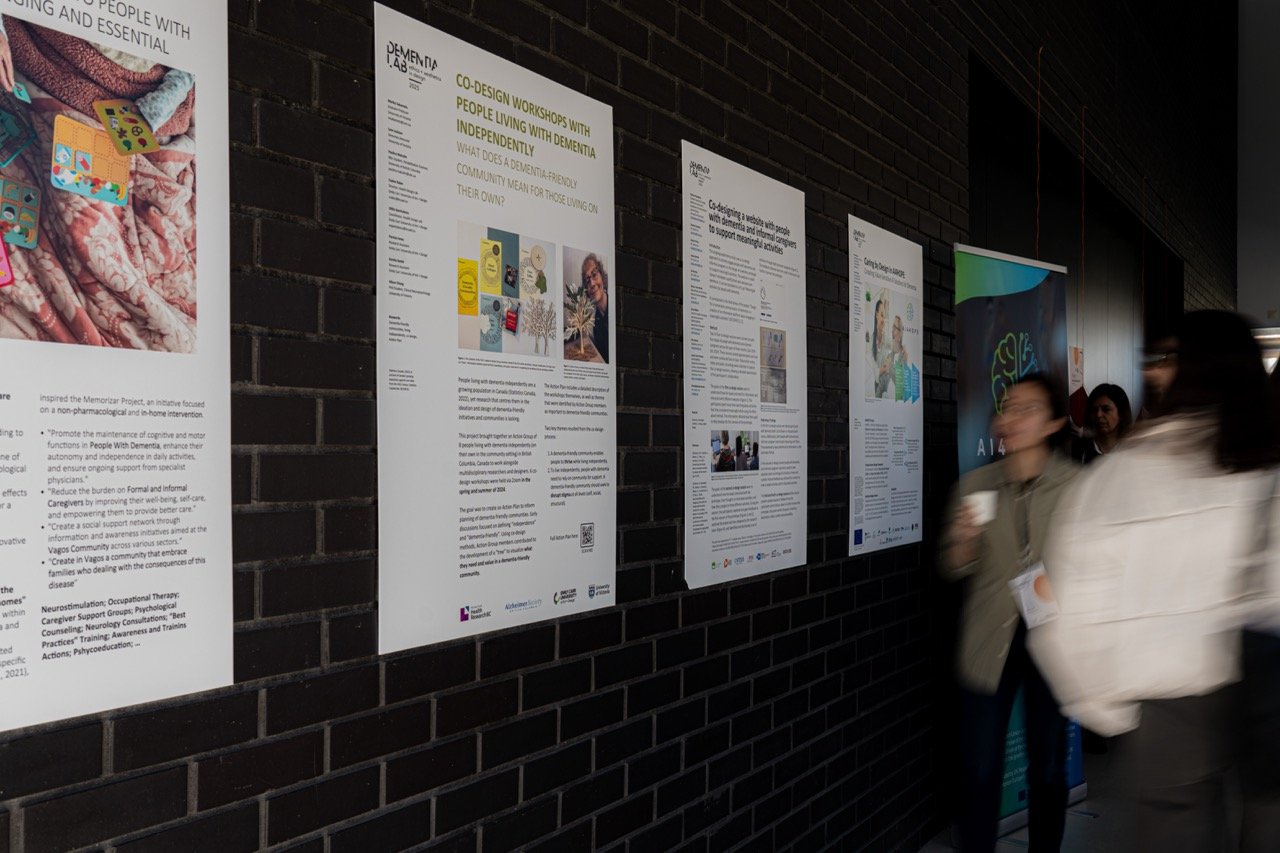
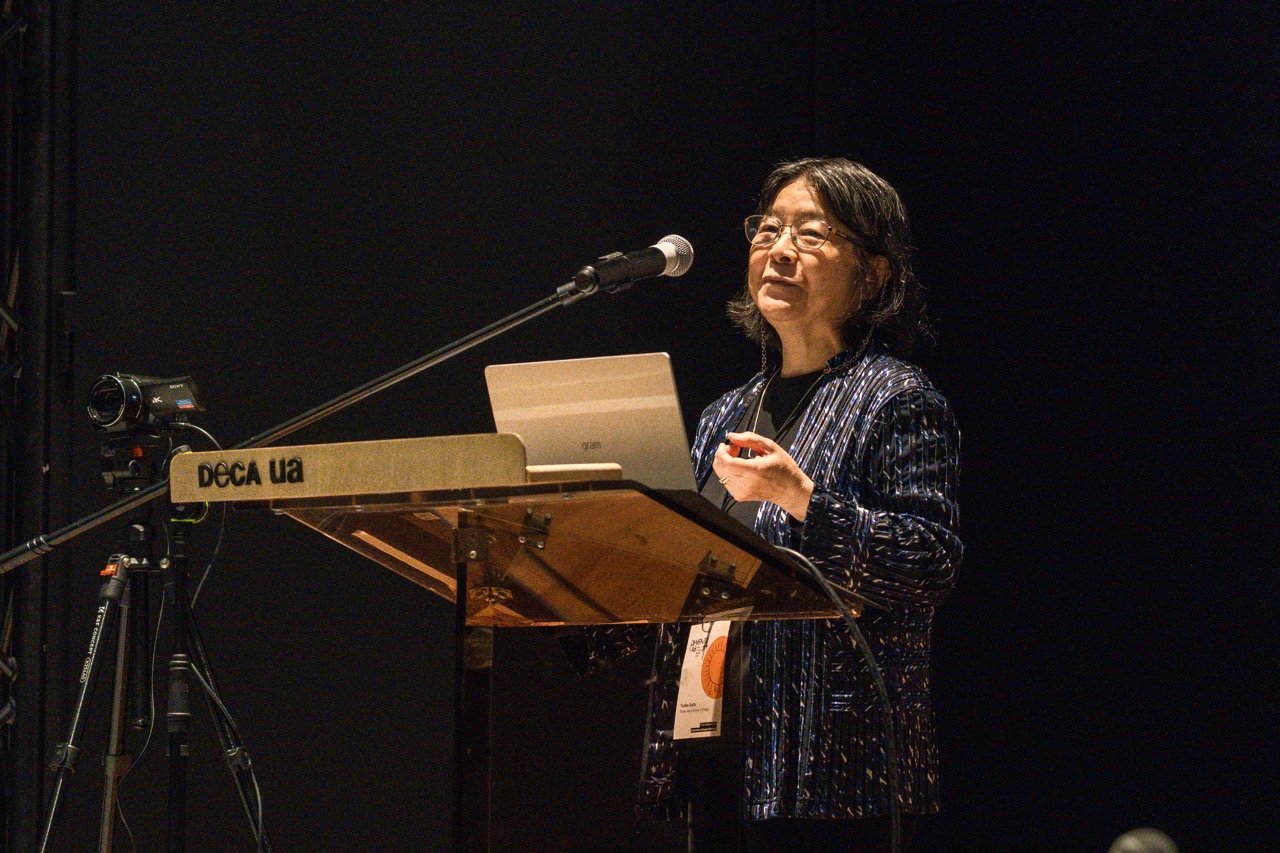
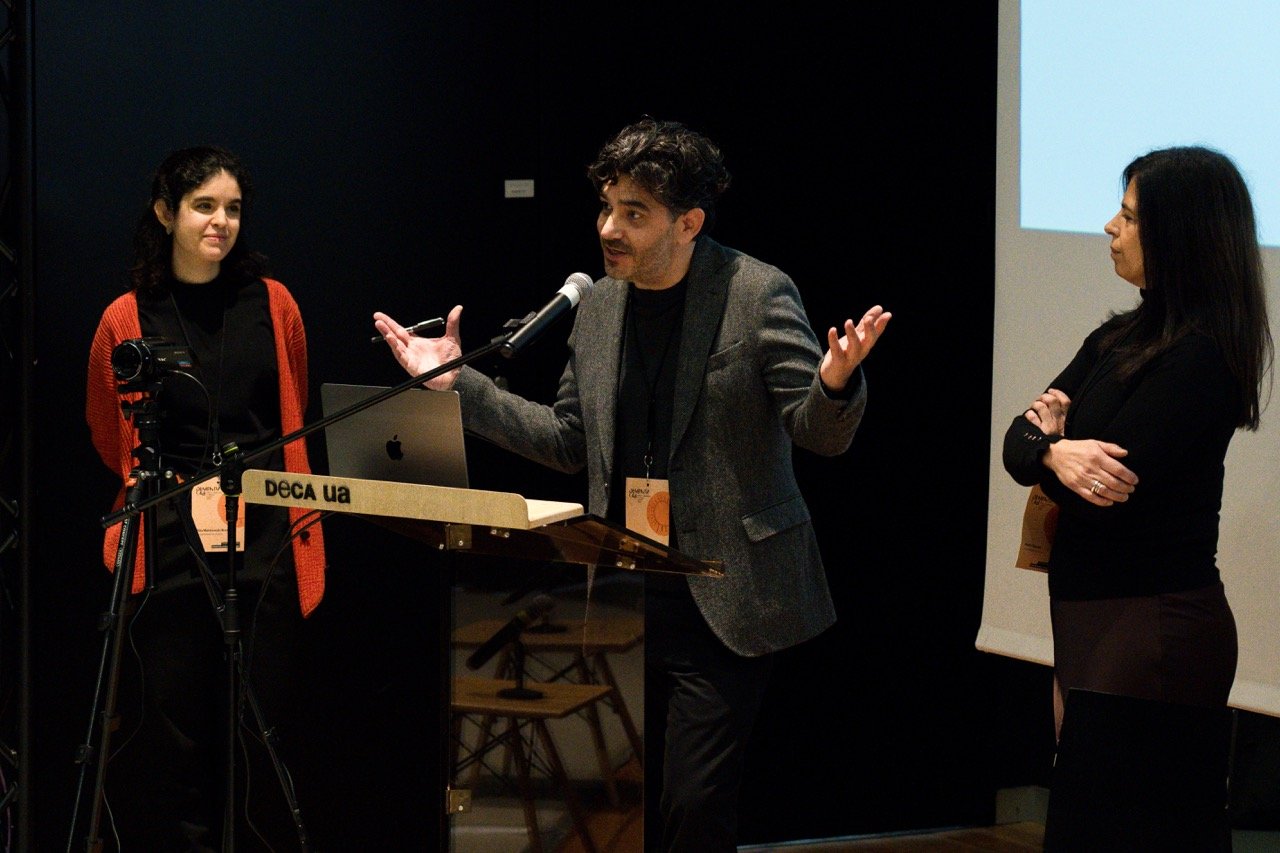

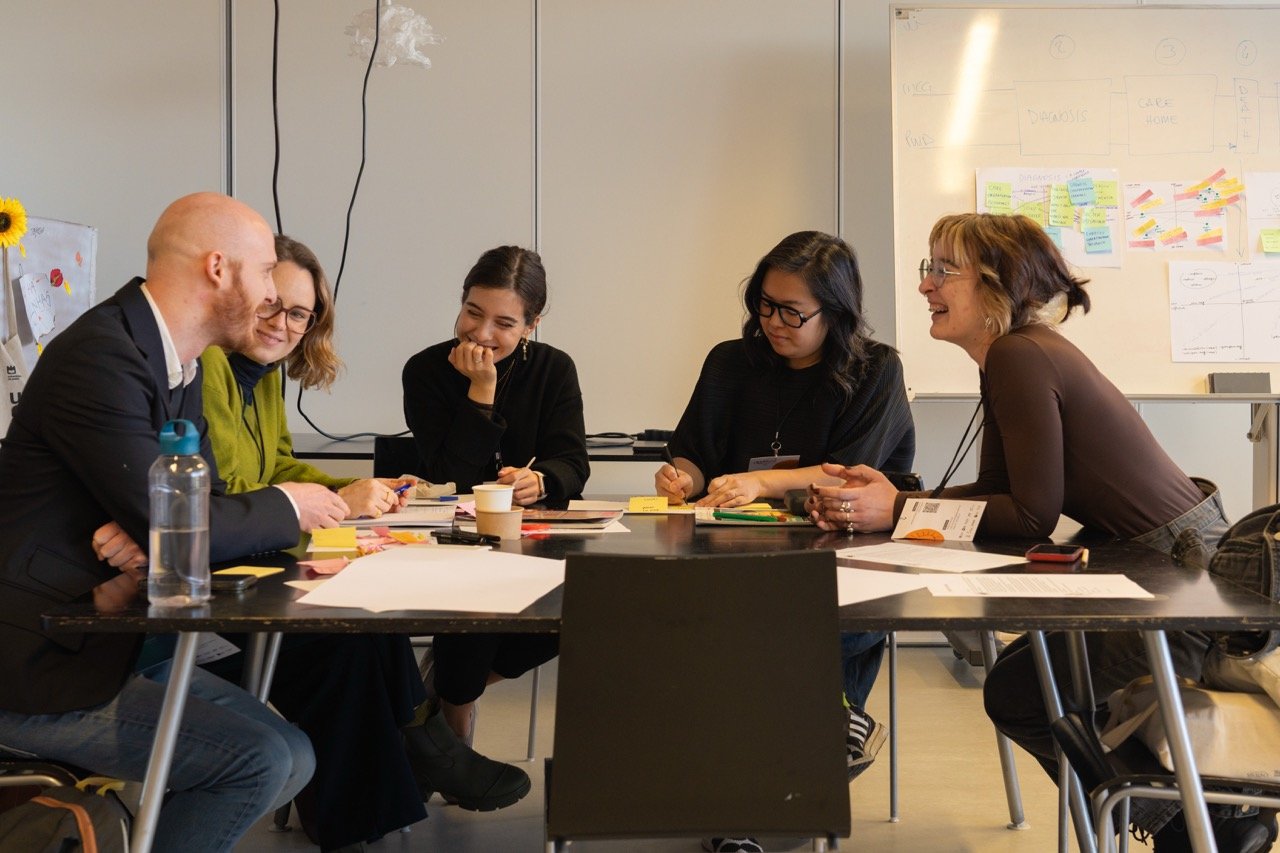
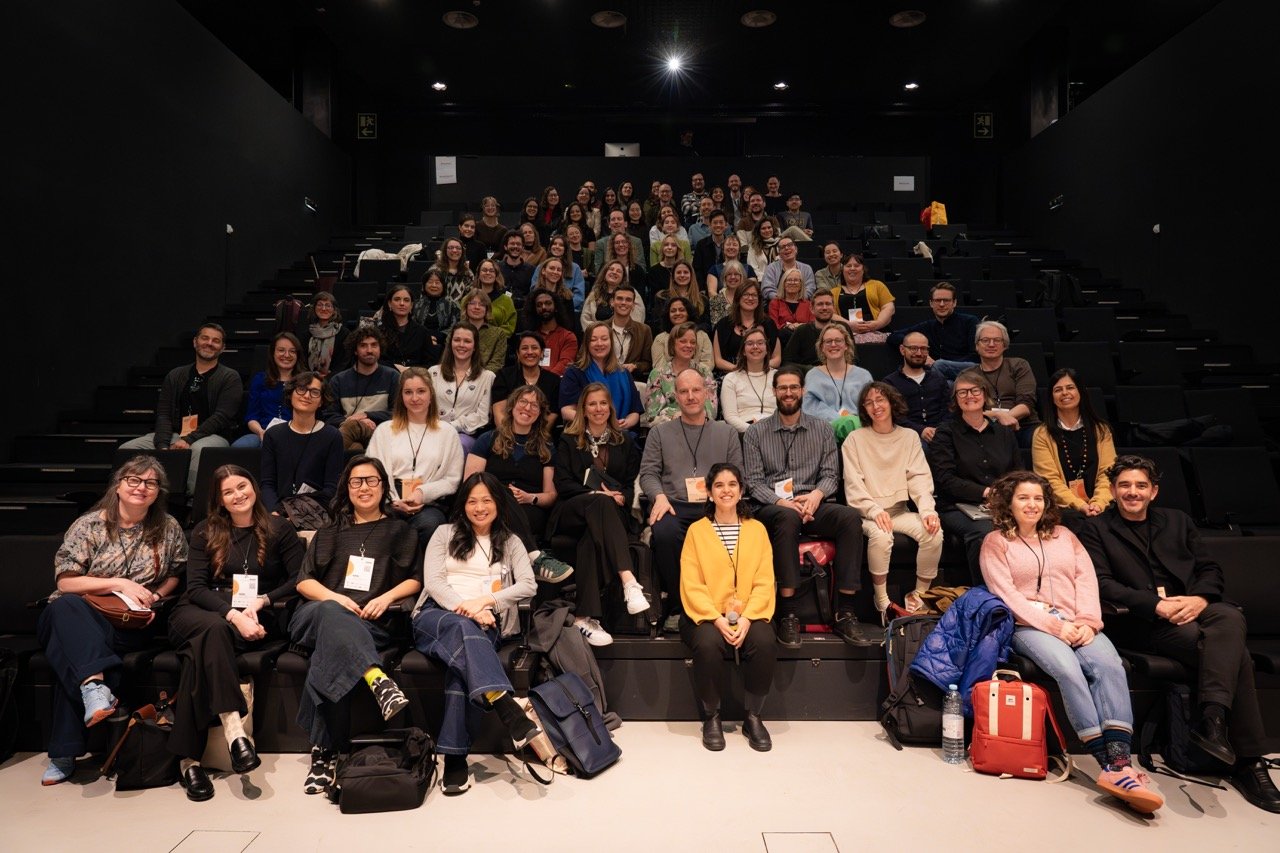
Credits: Communication Office of DECA, João Valentim and Susana Dias
Dementia Lab 2025 theme: ethics + aesthetics in design
The theme of the Dementia Lab Conference 2025 will look at ethics and aesthetics. Although often not recognised as paramount topics, both are central when designing for, and together with people with dementia, as well as when selecting and using any kind of products in dementia care.
In the work with and for people with dementia, we often are confronted with ethical issues and concerns. Not only because we are dealing with people who might be vulnerable, and whose diagnosis is evolving, but also because this leads to differences in the experience of realities and beliefs, which we might be difficult to understand and respond to. This is, sometimes, perceived as a constraint to the creativity and aesthetic freedom of the designer. On the other hand, aesthetics is occasionally regarded as not relevant or worthy for people with dementia. However, being a provider of aesthetic experiences, design can contribute to turning the world that surrounds us more pleasant, comforting and attractive, thus potentially more inviting, stimulating and inclusive. By ‘aesthetic’, we not only refer to beauty but to an embodied engagement with the world, through the senses, which becomes even more crucial to acknowledge and incentivize as dementia progresses. Therefore, aesthetics might also support more ethical care practices and a means to challenge stigma.
The next edition of Dementia Lab invites you to reflect and engage in discussions around ethics and aesthetics, and the tensions and associations between them.
We encourage submissions that reflect on the conference theme, across three domains:
1
designing with people with dementia
What ethical challenges emerge from the involvement of people with dementia and their carers in participatory design processes and how to overcome them?
What is the role of aesthetics in dignifying and supporting the engagement of people with dementia and their carers in a design process?
How can approaches to design help to address some of the power imbalances that might exist in research processes?
How can we ensure that existing ethical processes in research do not stifle the voices of people living with dementia?
2
designing for people with dementia
What role can aesthetics have in making products, services, tools, and environments more relational and more human, thus less stigmatising for people with dementia? Can design challenge preconceptions and stereotypes of dementia?
How can design support in the creation of more equitable services and environments for people living with dementia?
What ethical values should be behind the conception of products, services, tools, and environments for people with dementia?
3
including design in dementia care
How is design included in dementia care practices?
How are objects, environments, tools, services being used to support people with dementia? What ethical challenges do these raise?
What is the importance of aesthetics and design in dementia care practices?
Approached from an inclusive, participatory and person-centered perspective, the Dementia Lab Conference allows for focused discussion with like-minded designers, researchers, carers and other professionals operating within this domain. Where in other venues it might be challenging to convey the experience of working with people with dementia, or the urgency of working in this field, the Dementia Lab Conference tries to provide a platform of inclusion. As the number of people with dementia continues to increase worldwide, designers, educators and carers are continuously presented with new challenges. As a collective network, we believe that design can help improve the potential of products, technology, services and environments to alleviate these challenges and contribute to the quality of life, care and well-being of people living with dementia.
Established in 2016, the Dementia Lab is a growing community that continues to build on a legacy of designing for and with people living with dementia and their surrounding context.
About the Dementia Lab Conference
Dementia Lab 2022 @ Leuven
Credits: Studio Lieke Li (conference photos); Andrea Wilkinson (post-it board).
